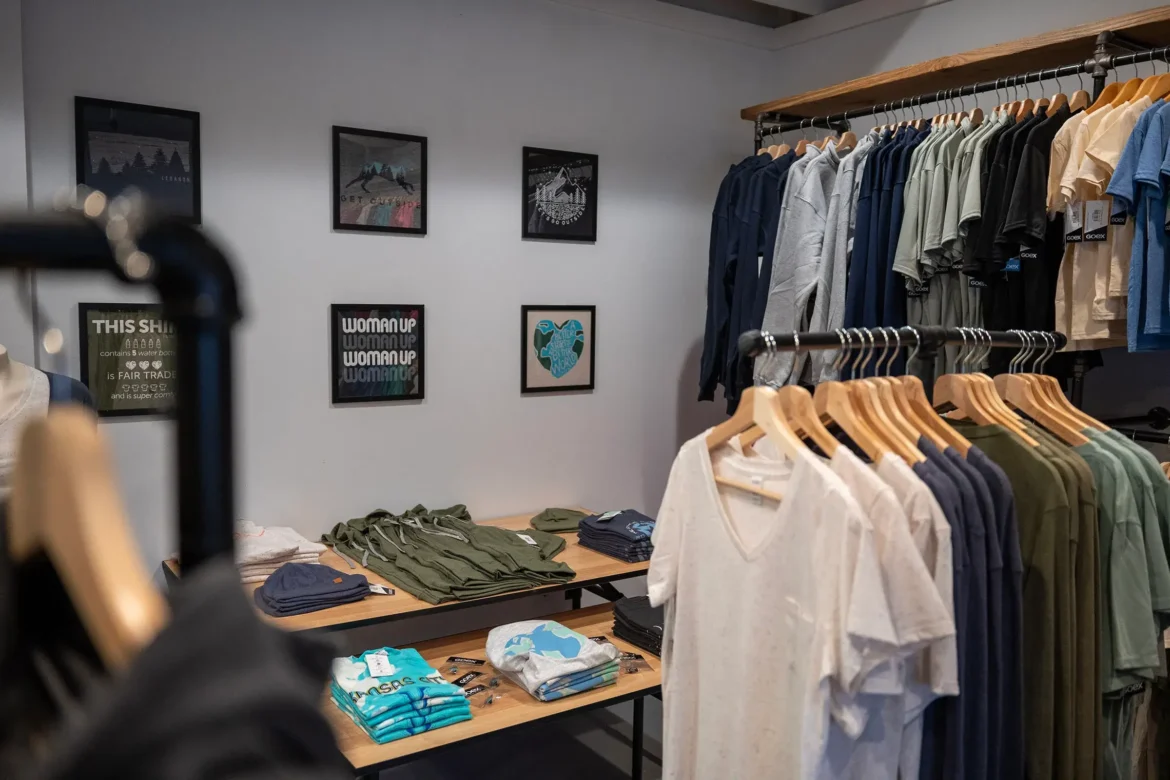Fair trade is a movement aimed at promoting equity in international trading partnerships. It prioritizes fair wages, safe working conditions, and sustainable practices. The fundamental principles of fair trade include fair pay for workers, ensuring no child labor, fostering environmentally sustainable production methods, and promoting transparency throughout the supply chain. By adhering to these principles, fair trade initiatives aim to empower marginalized producers and improve their socio-economic conditions.
Understanding Fair Trade
Impact of Fair Trade Practices on Workers and Communities
Fair trade practices have a significant positive impact on workers and communities involved in clothing production. By ensuring fair wages and decent working conditions, fair trade empowers workers, especially in developing countries, where labor exploitation is prevalent. Fair trade initiatives often invest in community development projects, such as education, healthcare, and infrastructure, which contribute to the overall well-being of communities. Additionally, fair trade promotes gender equality by providing opportunities for women in the workforce and supporting initiatives that address gender-based discrimination.
Importance of Supporting Fair Trade Initiatives
Supporting fair trade initiatives is crucial for fostering sustainable development and social justice globally. By choosing fair trade products, consumers can contribute to poverty alleviation, environmental conservation, and the promotion of human rights. Fair trade empowers marginalized producers to improve their livelihoods and break the cycle of poverty. Moreover, supporting fair trade initiatives sends a message to corporations and governments about the importance of ethical business practices and responsible consumption.
The Need for Wholesale Fair Trade Clothing
Challenges in the Fashion Industry
The fashion industry faces numerous challenges, including labor exploitation, environmental degradation, and unethical practices. Fast fashion, characterized by cheap, disposable clothing produced under exploitative conditions, has dominated the industry, leading to widespread social and environmental problems. The pressure to produce cheap clothing quickly has resulted in sweatshop labor, unsafe working conditions, and pollution of waterways and ecosystems.
Ethical Concerns in Clothing Production
Clothing production often involves labor exploitation, especially in developing countries where regulations are lax, and workers’ rights are often disregarded. Many garment workers, including women and children, work long hours in hazardous conditions for meager wages. Moreover, the fashion industry’s reliance on cheap labor and unsustainable practices contributes to environmental degradation, including pollution, deforestation, and resource depletion.
Benefits of Choosing Fair Trade Clothing in Bulk
Opting for wholesale fair trade clothing offers several benefits for ethical shoppers and the planet. By purchasing fair trade clothing in bulk, consumers can support ethical fashion brands and promote sustainable practices throughout the supply chain. Fair trade ensures that workers receive fair wages and work in safe conditions, thus addressing social injustices prevalent in the fashion industry. Additionally, fair trade promotes environmental sustainability by prioritizing eco-friendly materials, reducing waste, and minimizing carbon emissions.
Advantages of Wholesale Fair Trade Clothing
Ensuring Fair Wages and Working Conditions
One of the primary advantages of wholesale fair trade clothing is the assurance of fair wages and decent working conditions for garment workers. Fair trade initiatives prioritize the well-being of workers by ensuring that they receive fair compensation for their labor and work in safe environments. By purchasing wholesale fair trade clothing, consumers can support ethical business practices and contribute to the improvement of workers’ livelihoods.
Supporting Sustainable and Environmentally Friendly Practices
Wholesale fair trade clothing often involves the use of sustainable materials and environmentally friendly production methods. Fair trade initiatives promote organic farming, responsible water management, and renewable energy sources to minimize the environmental impact of clothing production. By choosing wholesale fair trade clothing, consumers can reduce their ecological footprint and support initiatives that prioritize planet-friendly practices.
Empowering Communities and Promoting Social Justice
Another significant advantage of wholesale fair trade clothing is its potential to empower marginalized communities and promote social justice. Fair trade initiatives invest in community development projects, such as education, healthcare, and infrastructure, to improve the lives of producers and their families. By supporting fair trade, consumers can contribute to poverty alleviation, gender equality, and inclusive economic growth in developing countries.
Finding Wholesale Fair Trade Clothing Suppliers
Researching Ethical Fashion Brands and Distributors
When seeking wholesale fair trade clothing suppliers, it’s essential to research ethical fashion brands and distributors that prioritize fair trade principles. Look for companies that are transparent about their sourcing practices, certifications, and ethical commitments. Many fair trade organizations provide directories of certified suppliers and retailers, making it easier to find trustworthy partners.
Assessing Certifications and Standards
Certifications and standards play a crucial role in verifying the authenticity of fair trade products. Look for certifications such as Fair Trade Certified, Global Organic Textile Standard (GOTS), and Fair Wear Foundation (FWF), which indicate that the clothing meets rigorous social and environmental criteria. Additionally, consider the supplier’s adherence to fair trade principles, such as fair wages, safe working conditions, and respect for workers’ rights.
Building Relationships with Fair Trade Suppliers
Building strong relationships with fair trade suppliers is key to ensuring a reliable and ethical supply chain. Communicate openly with suppliers about your commitment to fair trade and your expectations regarding product quality, pricing, and delivery. By establishing trust and mutual respect, you can foster long-term partnerships that benefit both your business and the producers.
Tips for Ethical Shopping
Prioritizing Transparency and Accountability
Transparency and accountability are essential when making ethical shopping choices. Look for brands and retailers that provide transparent information about their supply chain, production processes, and ethical certifications. Ask questions about sourcing practices, labor conditions, and environmental impact to ensure that your purchases align with your values.
Understanding Labels and Certifications
Familiarize yourself with ethical labels and certifications to make informed purchasing decisions. Labels such as Fair Trade Certified, Organic, and Ethical Fashion indicate that the product meets certain social and environmental standards. Take the time to research what each certification entails and how it aligns with your values as a consumer.
Making Informed Choices as a Consumer
As a consumer, you have the power to make a difference through your purchasing decisions. Take the time to research brands, compare options, and choose products that align with your ethical values. Consider factors such as labor practices, environmental impact, and social responsibility when making purchasing decisions. By voting with your wallet, you can support ethical businesses and drive positive change in the fashion industry.
Conclusion:
Wholesale fair trade clothing offers ethical shoppers an opportunity to support social justice, environmental sustainability, and fair labor practices. By understanding the principles of fair trade, recognizing the need for ethical clothing production, and choosing wholesale fair trade options, consumers can make a positive impact on the world. Through research, education, and conscious consumption, we can promote a fashion industry that values people, planet, and prosperity for all. Join the movement for ethical fashion and make a difference one purchase at a time.




